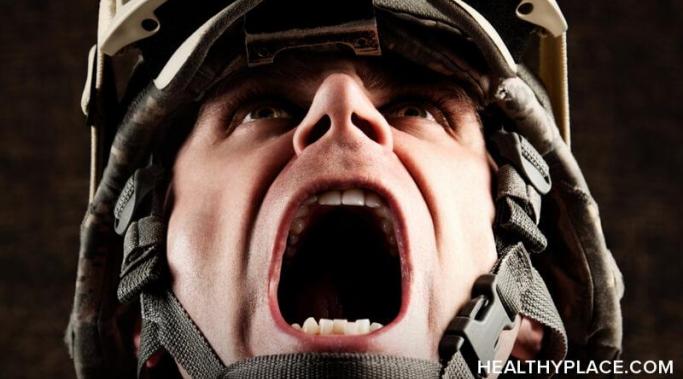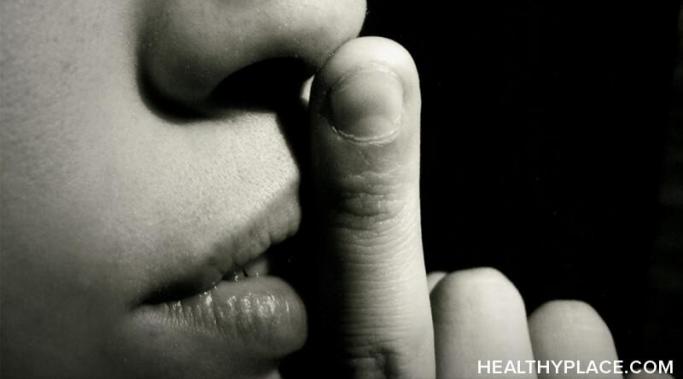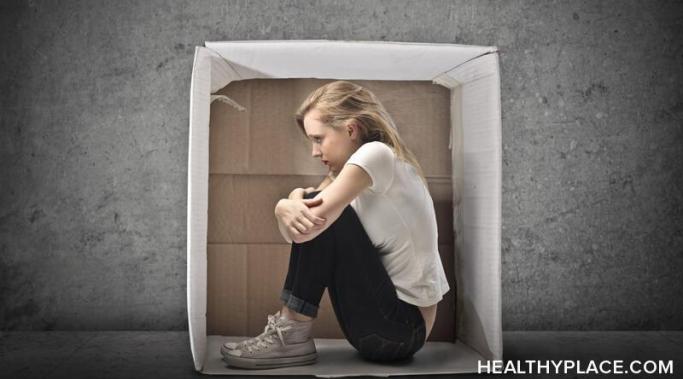Depersonalization is one of the potential dissociative symptoms experienced by a person with posttraumatic stress disorder (PTSD). Individuals frequently describe depersonalization as repeated instances of feeling a disconnect between one's thoughts and physical self. Some also describe it as watching the world through a dreamlike state or watching events from outside one's body. It is one of the most challenging to define sensations I have ever experienced. Following are some examples of depersonalization symptoms in PTSD and how I experienced them.
PTSD Symptoms
Setting goals for posttraumatic stress disorder (PTSD) recovery can be difficult, in part because PTSD impacts every aspect of daily living, every day. When seeking help for recovery, it is understandable to want to feel better as quickly as possible in order to put the worst behind you and move on. Sometimes it can be difficult to notice what progress is being made when you are still experiencing the symptoms of PTSD daily. This is where understanding your PTSD diagnosis as well as any coexisting conditions and setting goals for PTSD recovery can help you feel successful.
Does having posttraumatic stress disorder (PTSD) make you violent? I haven't seen the Las Vegas shooter accused of having posttraumatic stress disorder (PTSD), but past perpetrators of mass shootings have been speculated to have PTSD. Is it true? Does having PTSD make people more violent or prone to committing acts of extreme violence?
Do you appreciate your successes, or does pausing to appreciate success scare you? Even though success is a very normal aspiration, feeling happy about a success (or feeling happy for any reason) can be scary for trauma survivors. The definition of success varies greatly between individuals and can even change during different stages of the same person's life. However, for those of us living with posttraumatic stress disorder (PTSD), the experience of success is sometimes a little extra complicated, even scary. I'm slowly learning to appreciate success in my life with PTSD.
What happens when someone with posttraumatic stress disorder (PTSD) is traumatized again? It's a question that has been on my mind a lot lately. So many scary and potentially traumatic or anxiety-provoking natural phenomena are taking place in the world right now. Whether we're talking the hurricanes in the Southern United States, the West Coast wildfires that caused ash to rain over my city for a day and a half, or the fatal floods in Southeast Asia, the world has watched a lot of unpredictable events unfold. Statistically speaking, some of the people affected by these natural disasters must already have PTSD.1 Are those people with PTSD being traumatized again?
At first, the idea that sexual promiscuity can result from childhood sexual abuse seems illogical. Wouldn't someone who suffered sexual abuse have difficulty creating intimate relationships and work to avoid personal contact? While this can often be the case, a review of the research on childhood sexual abuse (from the American Academy of Experts in Traumatic Stress, or AAETS) confirms that a large number of survivors engage in promiscuous behaviors, even those who turn away close relationships. Here are some of the reasons why childhood sexual abuse can lead to promiscuity.
I have experienced a lot of negative self-talk around my posttraumatic stress disorder (PTSD). Before my PTSD diagnosis and therapy, my daily life was filled with stress and feelings of worthlessness. I had lived with my anxieties, depression, and dissociation for most of my life. I had no frame of reference for what life could be like without these symptoms. I had to reach a point where I was unable to do anything but sit on the couch and obsess over imagined diseases and an untimely death before I sought out a professional. Even then, I had a difficult time allowing myself to heal as if I wasn't significant enough for help. Here are some things I wish I had known about negative self-talk and PTSD when I first began reaching out for assistance.
My memories lost to dissociation come from having experienced prolonged traumatic abuses as a child. I developed the protective reflex of dissociation at an early age. Dissociation was my response to frightening, harmful, and unpredictable environments. I learned to tune out and shut down mentally while still being able to respond to my surroundings to function in the moment. I don't know this because I remember it. I know this because other people hold memories for me. Here is how I began reclaiming my memories lost to trauma-related dissociation.
My posttraumatic stress disorder (PTSD) brain keeps me busy to avoid pain. Your PTSD brain could help you avoid pain in a very different way. The diversity found in the coping mechanisms people develop in posttraumatic stress disorder (PTSD) continues to surprise me. In my case, constant thinking was one way my PTSD brain protected me.
I have a bad habit and it's about posttraumatic stress disorder (PTSD)-related avoidance. I make plans with the best of intentions, only to cancel them at the last minute. Does this sound familiar to you? As many times as this has happened, I continue to experience a disconnect between the willingness to participate in an event when I make plans, and the utter desire to avoid leaving my room when it is time to go. However, I have found that breaking outings into steps reduces PTSD-related avoidance.









